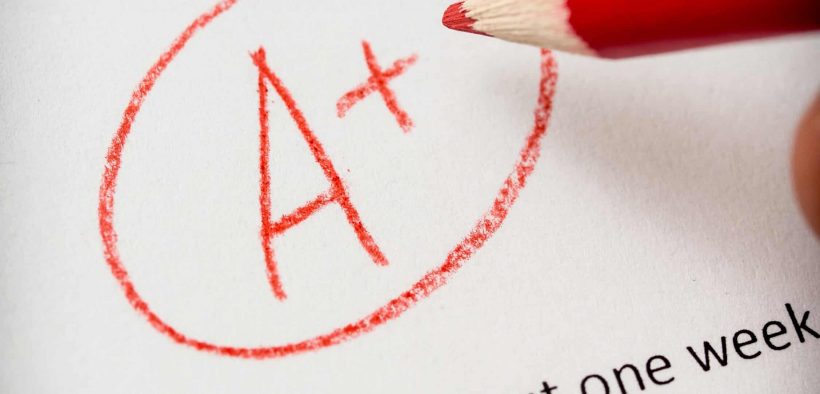Grade Inflation: A Problem With Two Sides to Blame
Share

Parents want to believe that their kids are thriving in school. But new research reveals that parents are often deceived when they are told that their children are performing satisfactorily.
The study, conducted this year by the educational nonprofit Learning Heroes, discovered that even though standardized test scores demonstrate that most students are not meeting grade-level expectations, public schools are still handing out predominantly good grades. (RELATED: There Is Nothing Worth Saving in America’s Public Schools)
My suspicion that this was happening at my son’s school was confirmed when the school shifted to virtual instruction in 2020 due to nationwide COVID-related closures. At the time, he was finishing seventh grade at a large urban public school that had a long history of problems and parent complaints. My husband and I had many questions and concerns, but school officials largely disregarded them. We decided to pull him out so that I could homeschool him.
I purchased an eighth-grade curriculum from a reputable homeschooling company, but I worried that he wasn’t yet ready for Algebra 1, which was the math level included for that grade. To be sure, we hired an educational assessor to determine if our son was ready for the algebra class. To our horror, the assessment found that our son had some understanding of fifth-grade math but not full command of that level.
How could I not have known? Why was he allowed to proceed past fifth grade, through sixth, and on to seventh without some kind of intervention? The truth is that I suspected something, but I overlooked all the signs — he seemed slow to learn his math tables, I wasn’t seeing his work come home from school, and his report cards only offered vague information about the topics covered that semester.
In parent–teacher meetings, the teacher always seemed to avoid eye contact and would brush off my concerns. I’d hear things like: “Oh, he understands, he just takes more time,” or “He’s working hard” — they’d answer with not a hint of alarm in their voices. He was pushed through the system, consistently receiving good grades.
Some parents are satisfied with the mirage they see as their children thirst in the educational deserts our public schools have become.
Former education secretary Arne Duncan recently spoke out about this perception gap. Joining a PBS podcast on “academic progress,” Duncan said, “The fact that [educators] are being dishonest … with [their students’] parents, we’re missing a massive opportunity to help parents help their children to catch up and close these gaps and enter high school and ultimately college ready to be successful.”
He’s right. But parents also share some of the blame. Like I was, most parents are happy to get good news about their kids and often push away doubts, ignoring any inconsistency between grades and performance. And, sadly, some just don’t want to do what is required to help their kids: spending more time with them, employing tutors, or even making them repeat a grade, which has become verboten in today’s fiercely competitive parenting culture.
I admit to some shame in ignoring, for so many years, the signs that my child needed a radical intervention. COVID forced me to face reality and do something.
My story ends on a positive note. After eighteen months of homeschooling, during which my child fully reviewed fifth- through seventh-grade math (using an actual textbook, paper worksheets, and pencils) and even managed to start pre-algebra, he’s finishing up Algebra 1 this year at his private high school. He’s getting a solid C — a realistic grade for a kid who, to this day, works hard but struggles with math. I’m happy to get an honest grade from a teacher who cares enough to give it.
Sadly, some parents are satisfied with the mirage they see as their children thirst in the educational deserts our public schools have become. Schools and parents alike must do better.
Julie Gunlock is a program director at the Independent Women’s Forum.
Subscribe to The American Spectator to receive our print magazine.
READ MORE:
Shut Down the Department of Education













